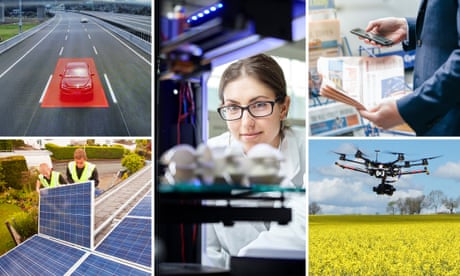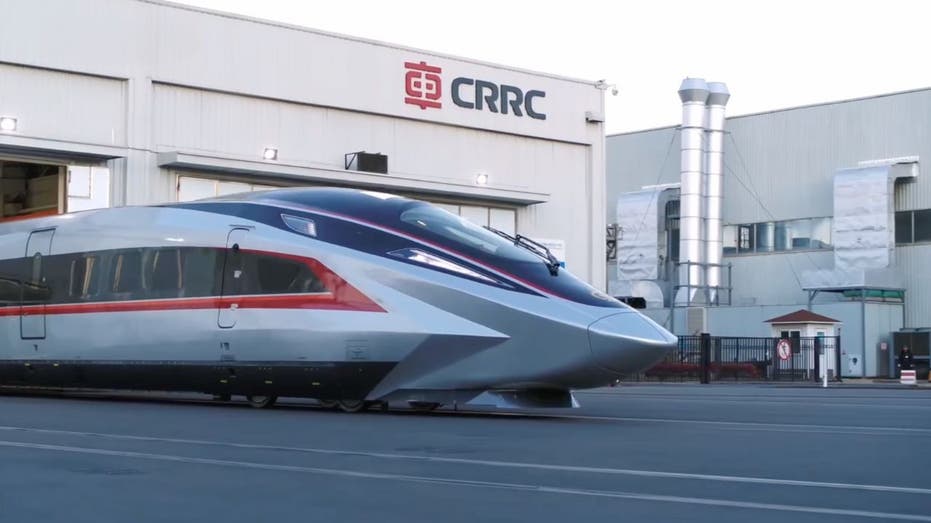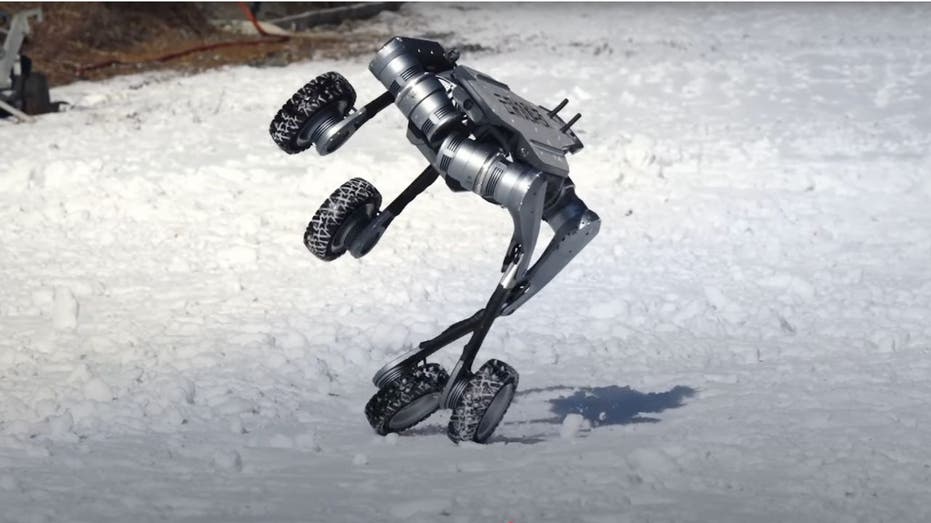- by foxnews
- 03 Feb 2025
From retail to transport: how AI is changing every corner of the economy
From retail to transport: how AI is changing every corner of the economy
- by theguardian
- 19 Feb 2023
- in technology

Monitoring weather patterns, managing pests and disease, working out the need for extra irrigation, or even which crops to grow where: many farmers believe agriculture is fertile ground for artificial intelligence.
Many food producers are using AI to collect and analyse data in their efforts to improve productivity and profitability.
Ali Capper, who grows apples and hops at her family farm on the border of Herefordshire and Worcestershire, has invested in new technology, including automated orchard sprayers, to use alongside the digital soil mapping she has employed since 2017.
While four-armed robots, designed for the delicate work of picking soft fruits, are being developed, robots with the dexterity of the human hand, capable of picking at speed without damaging fruit such as raspberries, may be a decade away from widespread use. Nonetheless, automation has already changed some of the most laborious jobs in farming, from drilling seeds to spraying and watering crops. Joanna Partridge
Media companies have embraced machine learning to boost subscriptions and advertising and to help make decisions about what stories to promote.
News organisations are hiring data scientists on six-figure salaries to pull together data to track customers and guide them towards particular products, while also providing workers with tools to take the grunt work out of finding and writing stories.
Media organisations are using data analysts to create targeted content that generates higher subscriptions and advertising revenues.
There are possible AI applications in every corner of the energyindustry: from predicting and identifying faults at power plants tousing weather forecasts to plan offshore windfarm projects.
With tight margins in a sector where almost 30 companies have gone bust during the energy crisis, retail energy suppliers are expected to increase the use of AI to cut down call times. Chatbots are used to ask basic questions before customers speak to a human adviser.
The former head of the civil service, Mark Sedwill, has said greater use of AI and automation will probably lead to a reduction in headcount.
Some councils are building computer models using personal data to help predict child abuse and intervene before it can happen, while Blackpool council is using AI-powered satellite images to help fix potholes.
There is concern in government that AI systems can build in human biases, risking the perpetuation of stereotypes and discrimination. Meanwhile, relying on computer models has stoked fear in the past that some public priorities are overlooked, including investment in the north of England and green projects.
But the next iterations of AI could be profoundly political, as the current rail dispute in Great Britain underlines. Network Rail is hoping to shed more than 1,000 jobs, arguing that automation could create a more efficient and safe inspection regime by using data to predict faults. Gwyn Topham
The financial services sector is at greater risk of job losses from AI than other sectors, according to government forecasts, but experts say this is partly a matter of catch-up.
For example, banks and wealth managers will need fewer staff to onboard new clients as they automate more of their customer background checks and will rely more heavily on AI to detect and flag potential fraud and money-laundering risks.
But these systems will still require human oversight, not only to build and programme the technology but also to conduct additional checks and sort out more complex problems.
The most obvious change to any shopper is the rise in the use of self-checkouts and self-scanning systems in supermarkets in the last five years. Change was supercharged by the pandemic when labour became more expensive and difficult to find while shoppers became wary of interactions with staff.
Analysts at the advisory firm McKinsey have predicted that the number of cashiers could almost halve between 2017 and 2030 as these technologies are rolled out. Bryan Roberts at the industry body IGD said the majority of sales in most UK supermarkets are now rung up on self-scanning or automated tills.
The rise of labour costs has also led non-food retailers to give the technology a go. The Japanese-owned clothing chain Uniqlo introduced a system linked to radio frequency identification tags a few years ago.
Electronic labels on shelves, so prices can be changed automatically from head office, alongside AI-led technology to guide buying decisions and more robotics to pick and pack products in warehouses will also affect thousands of jobs. Sarah Butler
- by foxnews
- descember 09, 2016
Super Bowl 2025 flights, hotels see major price hike ahead of big game
Super Bowl LIX appears to be affecting flight costs and hotel accommodations as Kansas City Chiefs and Philadelphia Eagles fans head to New Orleans, Louisiana, for big game.
read more





